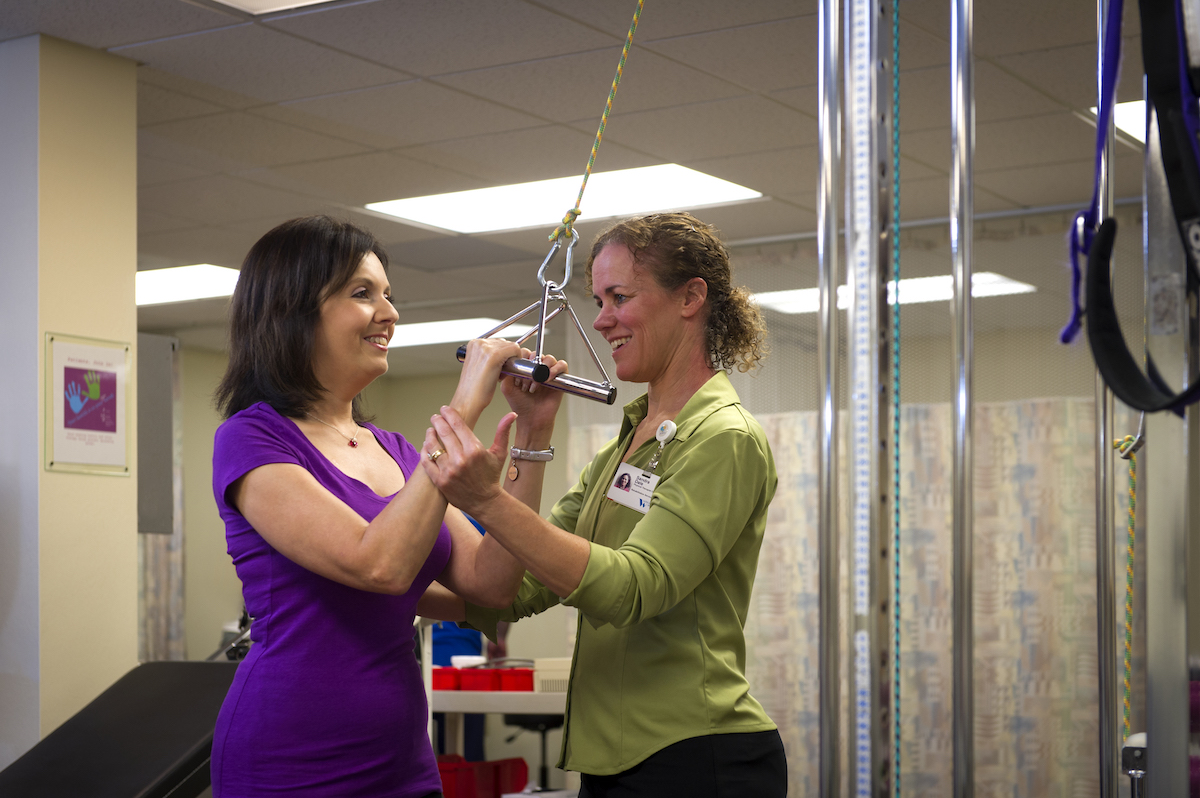New Program Is Changing the Way Cancer Is Treated

A patient completes PT at Winchester Hospital. Photo provided
For weeks before a big competition, athletes watch what they eat and add extra training. Why don’t cancer patients do the same before a big surgery?
That’s the thought behind Lahey and Winchester Hospitals’ pilot lung cancer “prehab” program. Patients in the program begin improving their general health before they ever have surgery, chemotherapy, or other invasive treatments, a method that experts say may help individuals respond better to treatment, shorten hospital stays, and avoid complications.
“Why is it we’re not doing anything with these patients, really, on a systematic approach prior to them undergoing this major stress in their life?” asks Andrea McKee, an oncologist at Lahey. “It really only makes common sense to try to address the needs of these patients and optimize their function before we’re about to put them through cancer treatment.”
Lahey and Winchester, which work with the STAR cancer rehab program, are two of only five hospitals in the country to offer cancer prehab. The system has five prongs: smoking cessation; physical therapy; general exercise; psychosocial assessment, including stress reduction; and nutrition counseling. Ideally, McKee says, all consultations and assessments are completed during the weeks patients typically have to wait before a procedure anyway, so as not to extend treatment time.
The prehab program is tailored specifically to lung cancer, though McKee says she hopes it will eventually expand to other types of cancer, particularly breast. So far, about 20 patients have passed through the program.
Small as it may be, though, McKee says the prehab program is somewhat of a revelation in the oncology world—a world that, until recently, had not mastered saving lives enough to even think of quality of life.
“If you haven’t figured out yet how to save your patient’s life from the cancer, you focus less on all these surrounding issues,” she says. “We’re doing a much better job at diagnosing early cancer and curing patients of cancer and wanting to optimize their outcomes so they have healthy and fulfilled lives after they’ve been through this treatment.”


